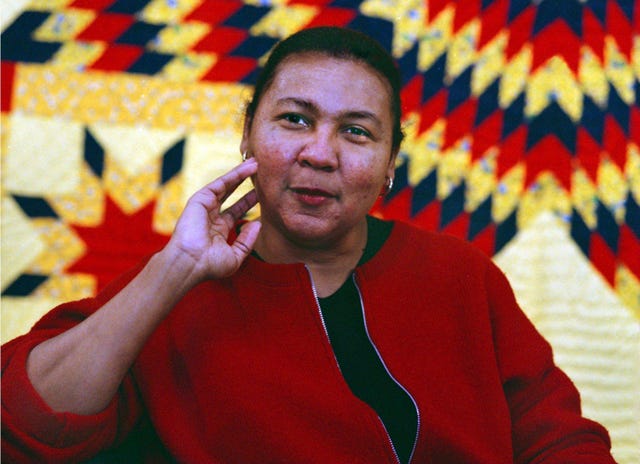
The Washington PostGetty Images
bell hooks, the profound feminist author, poet, and professor, died on Wednesday at the age of 69 in her home of Berea, Kentucky. She had been ill, and was surrounded by her friends and family when she passed, according to a statement from her niece, Ebony Motley, per the Lexington Herald Reader.
Berea College, where hooks taught as a distinguished professor, also announced her passing in a statement, praising her as a “public intellectual and one of the country’s foremost feminist scholars.”
hooks was born Gloria Jean Watkins in Hopkinsville, Kentucky on Sept. 25, 1952. After attending segregated schools in her home state, she went on to earn her undergraduate degree at Stanford University, followed by a master’s in English at the University of Wisconsin, and then a doctorate in literature at the University of California at Santa Cruz, according to NPR. She adopted her great-grandmother’s name as her pen name, using all lowercase letters to put the focus on the substance of her work rather than herself.
With dozens of prolific published titles, hooks is widely known and celebrated for writing about race, class, and gender and the ways they intersect in the struggle against power. Her first full-length book, Ain’t I a Woman: Black Women and Feminism, referencing Sojourner Truth’s famous speech, was published in 1981. She began writing it when she was only 19 years old. Of hooks’s 1999 groundbreaking book, All About Love, Maya Angelou wrote, “Each offering from bell hooks is a major event, as she has so much to give us.”
hooks’ critical analyses transcend the decades and continue to be widely referenced, studied, and shared. Per CNN, the writer once said that the intention behind her work wasn’t simply for public engagement, but “to produce theory that people could use.” She told The New York Times in 2015, “I have this phrase that I use, ‘working with the work.’ So if somebody comes up to me, and they have one of those bell hooks books that’s abused and battered, and every page is underlined, I know they’ve been working with the work. And that’s where it is for me.”
This content is created and maintained by a third party, and imported onto this page to help users provide their email addresses. You may be able to find more information about this and similar content at piano.io
